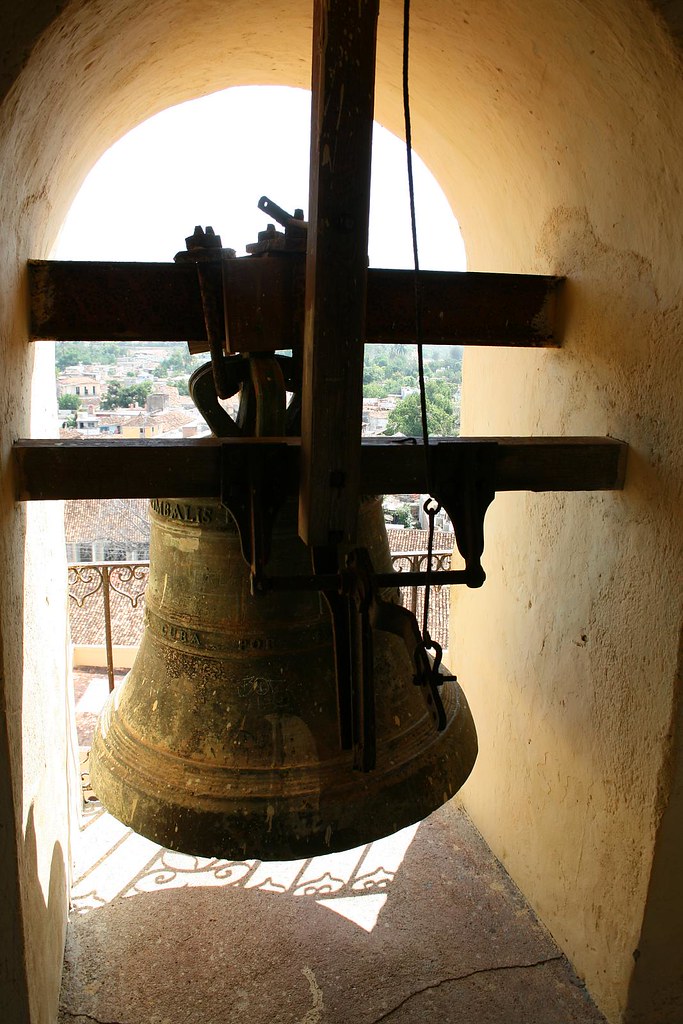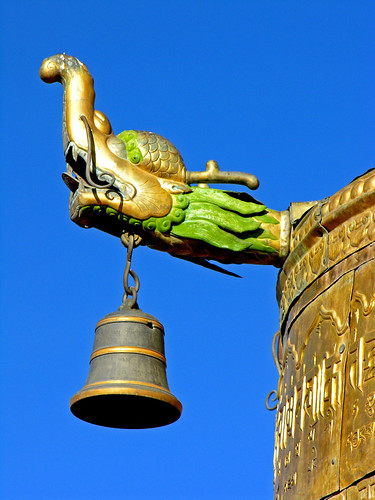Why at night and early in the morning, the bell is louder than the day?
The sound relies on air to spread. It travels straight forward in uniform temperature air; Once encountering high and low air temperature, it tries to choose the place where the low temperature is transmitted. So immediately “turn” sound.
During the day, the Sun heats the ground; the air near the ground is much higher than the air above. After ringing, the bell has not been far away, and it goes up high, where the temperature is relatively low. So, on the ground, outside a certain distance, the bell sounded unclear; a little further away, the bell was not heard. At night and early in the morning, the cold and hot air condition happens in the opposite direction: the air temperature near the ground is lower than above. The bell, after being emitted, immediately follows the ground, where the temperature is relatively low. Therefore, people in very far places can also hear the bell. The verse “half-heartedly shared with the boat guests” (at midnight listening to the boat’s bell to the passenger boat) is also based on a scientific basis!

This kind of nature of sound can create some interesting phenomena. In the hot desert, temperatures near the ground are relatively high. If someone outside howling 50 ~ 60 m, they could only see his mouth moving but could not hear the sound. That’s because after the howl came out, the sound quickly turned high up away. In contrast, in the vast snow and snow, the temperature near the ground is lower than in the air, the sound completely spreads along the ground; So, when someone howls for me, the sound can be transmitted very far, even beyond 1000 ~ 2000 m can be heard. Sometimes, due to the high and low air temperature near the ground, the sound also follows that turning up and down, often creating some relatively close areas where the sound cannot be heard, and in a farther place, can be heard.
In June 1815, during the famous Waterloo campaign, the “Flag” army was stationed not far from the battlefield, 25 km away after the outbreak of the battle. Still, no one heard loud gunfire, so that no one could run to Napoleon in advance according to the battle plan. Yet in a farther place, the sound of cannons could be heard clearly. The propagating nature of sound affects the success and failure of such a campaign!




